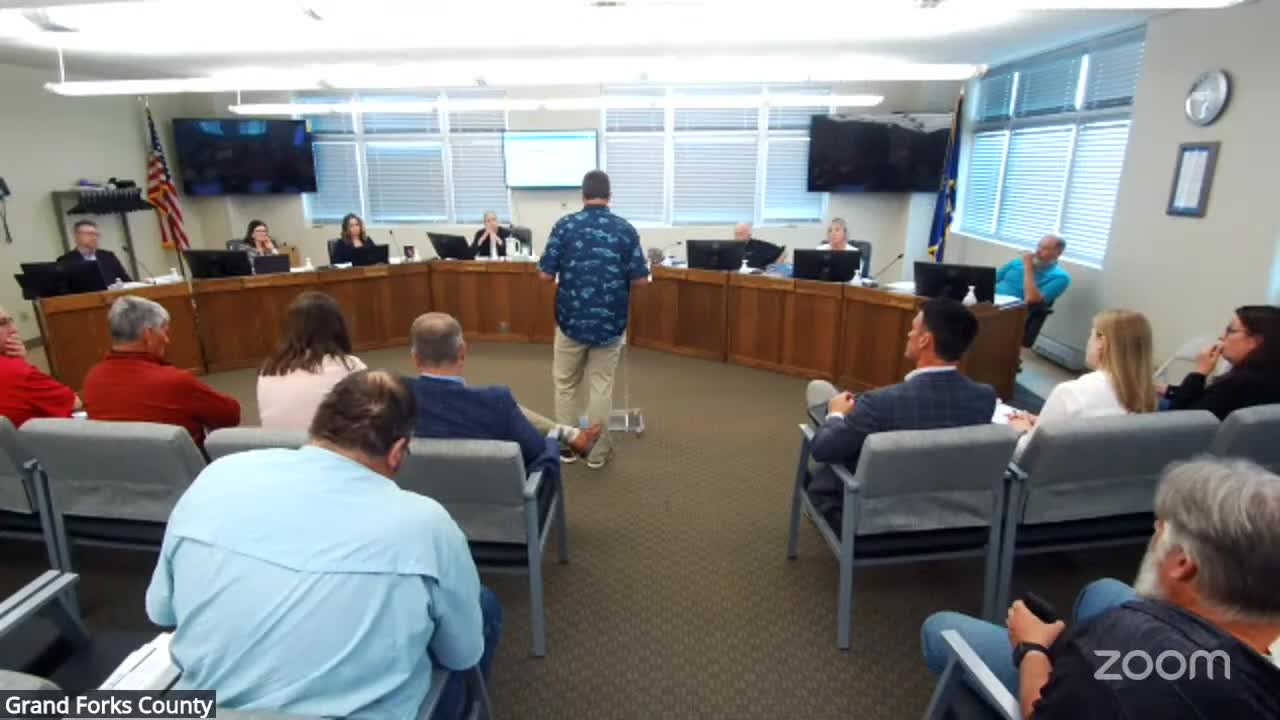Grand Forks Officials Address Housing Shortage and High Tax Concerns Amid Budget Struggles
July 16, 2025 | Grand Forks County, North Dakota
This article was created by AI summarizing key points discussed. AI makes mistakes, so for full details and context, please refer to the video of the full meeting. Please report any errors so we can fix them. Report an error »

The Grand Forks County Board of Commissioners convened on July 15, 2025, to address pressing issues surrounding housing affordability and taxation in the region. The meeting highlighted the ongoing challenges faced by residents and local officials in managing the housing crisis and the financial implications of proposed developments.
The discussion opened with a focus on the critical shortage of housing in Grand Forks County. Commissioners expressed concern that without additional rental units, the affordability issue would worsen. One commissioner emphasized the need for action to support builders willing to invest in the community, warning that inaction would exacerbate the existing problems.
A significant point of contention arose regarding the high tax rates in Grand Forks compared to other cities in North Dakota. One commissioner noted that the per capita tax burden in Grand Forks was over $5,000, significantly higher than in cities like Minot and Bismarck. This disparity raised concerns about the impact on current taxpayers, particularly as the county seeks to attract new developments while managing existing financial obligations.
The board also discussed the implications of tax incentives for new projects. Some commissioners expressed hesitation about granting extensive property tax exemptions, fearing it would place an unfair burden on existing taxpayers. The debate centered on finding a balance between encouraging economic development and ensuring that current residents are not disproportionately affected by tax increases.
As the meeting progressed, the commissioners acknowledged the broader economic challenges facing the agricultural sector, which is a vital part of the local economy. With commodity prices at historic lows, many farmers are struggling to remain viable, adding another layer of complexity to the county's financial landscape.
In conclusion, the meeting underscored the urgent need for a strategic approach to housing and taxation in Grand Forks County. The commissioners recognized the importance of fostering economic growth while being mindful of the financial strain on residents. As discussions continue, the board faces the challenge of navigating these issues to ensure a sustainable future for the community.
The discussion opened with a focus on the critical shortage of housing in Grand Forks County. Commissioners expressed concern that without additional rental units, the affordability issue would worsen. One commissioner emphasized the need for action to support builders willing to invest in the community, warning that inaction would exacerbate the existing problems.
A significant point of contention arose regarding the high tax rates in Grand Forks compared to other cities in North Dakota. One commissioner noted that the per capita tax burden in Grand Forks was over $5,000, significantly higher than in cities like Minot and Bismarck. This disparity raised concerns about the impact on current taxpayers, particularly as the county seeks to attract new developments while managing existing financial obligations.
The board also discussed the implications of tax incentives for new projects. Some commissioners expressed hesitation about granting extensive property tax exemptions, fearing it would place an unfair burden on existing taxpayers. The debate centered on finding a balance between encouraging economic development and ensuring that current residents are not disproportionately affected by tax increases.
As the meeting progressed, the commissioners acknowledged the broader economic challenges facing the agricultural sector, which is a vital part of the local economy. With commodity prices at historic lows, many farmers are struggling to remain viable, adding another layer of complexity to the county's financial landscape.
In conclusion, the meeting underscored the urgent need for a strategic approach to housing and taxation in Grand Forks County. The commissioners recognized the importance of fostering economic growth while being mindful of the financial strain on residents. As discussions continue, the board faces the challenge of navigating these issues to ensure a sustainable future for the community.
View full meeting
This article is based on a recent meeting—watch the full video and explore the complete transcript for deeper insights into the discussion.
View full meeting
